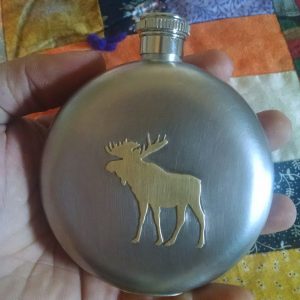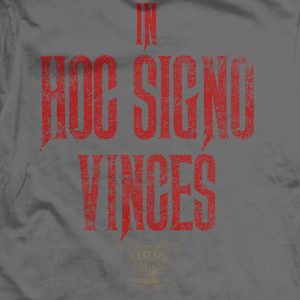A reader–who was raised as a Jehovah’s Witness, became an atheist, and is now re-exploring the idea of God–sent me a question on blood transfusions. I was having difficulty summarizing it, so here it is in completion.
To start off, I’d like to talk about the issue of blood– just to get it out of the way, since it’s impossible to think about JWs and not think about the blood transfusion thing. These are the texts on which the JWs base their reasoning:
Genesis 9:4
“Only flesh with its soul – its blood – YOU must not eat.”
Deuteronomy 12:22-27
“Only be sure not to eat the blood, for the blood is the life, and you shall not eat the life with the flesh. You shall not eat it; you shall pour it out on the ground like water… And you shall offer your burnt offerings, the flesh and the blood, on the altar of the LORD your God; and the blood of your sacrifices shall be poured out on the altar of the LORD your God.”
Leviticus 17:10
“And whatsoever man there be of the house of Israel, or of the strangers that sojourn among you, that eateth any manner of blood; I will even set my face against that soul that eateth blood, and will cut him off from among his people.”
So this is the Mosaic Law, which some argue was abolished when Jesus died. But then we find similar commands in the New Testament:
Acts 15:19, 20
“Therefore it is my judgment that we do not trouble those who are turning to God from among the Gentiles, but that we write to them that they abstain from things contaminated by idols and from fornication and from what is strangled and from blood.
Acts 15:28, 29
“For it seemed good to the Holy Spirit and to us to lay upon you no greater burden than these essentials: that you abstain from things sacrificed to idols and from blood and from things strangled and from fornication; if you keep yourselves free from such things, you will do well. Farewell.”
Acts 21:20
“But concerning the Gentiles who have believed, we wrote, having decided that they should abstain from meat sacrificed to idols and from blood and from what is strangled and from fornication.”
The usual response for all this is that it is not about transfusion, but about eating or drinking blood, so it shouldn’t apply to transfusion. Well, this doesn’t sit well with me at all. If the Bible flat out told you to “abstain from wine,” would it be ok if, instead of drinking it, you’d just infuse it directly into your veins? I don’t think so. They say this was a command mostly for sanitary reasons (Old Testament), or because drinking blood was a common pagan habit (New Testament), so it should be understood in the proper context. But if it was instead because the blood is sacred to God, because it is life/soul (Genesis), and the only acceptable thing to do with blood after it leaves the body is to pour it on the ground (to return it to God, so to speak — 2 Samuel 23:13-17), so I fail to see how taking it out of another body, storing it in bags and then injecting into your body does not violate the sanctity of blood/life/soul.
The only line of argument that I find somewhat convincing is the doctrine of Pikuach Nefesh, which basically means that life is sacred and must be saved, in almost every case. This is mostly a Jewish principle, but Jesus said something in line with it:
Matthew 12:11
“Who will be the man among YOU that has one sheep and, if this falls into a pit on the sabbath, will not get hold of it and lift it out? All considered, of how much more worth is a man than a sheep!”
Mark 3:4-5
“Next he said to them: “Is it lawful on the sabbath to do a good deed or to do a bad deed, to save or to kill a soul?” But they kept silent. And after looking around upon them with indignation, being thoroughly grieved at the insensibility of their hearts, he said to the man: “Stretch out your hand.” And he stretched it out, and his hand was restored.” — see also Luke 6:7-10
So, these texts seem to corroborate the idea that human life is more precious to God than strict observance of certain laws. This makes sense to me. Since there is no direct order against transfusion, and the command in the New Testament referred mostly to pagan habits, I can imagine Jesus saying that saving a life is more important than abstaining from blood. Specially since he also said this:
Matthew 15:11
“Not what enters into [his] mouth defiles a man; but it is what proceeds out of [his] mouth that defiles a man.”
Mark 7:15
“There is nothing from outside a man that passes into him that can defile him; but the things that issue forth out of a man are the things that defile a man.”
However, this does not exactly address the issue of sanctity of blood/life/soul, and I also feel it conflicts with Matthew 16:25: “For whoever wants to save their life will lose it, but whoever loses their life for me will find it.” This passage tells me that it is more righteous to lose your earthly life doing the right thing than to put it above the right thing and risk losing eternal life.
But it all comes down to whether abstaining from blood, including transfusions, is what God wants. What do you think?
I’ll be honest.
I think this is the wrong place to start. Not that it’s the wrong question for you to ask, just that it would be the wrong question for me to answer. I can’t answer your question by answering your question.
So let’s talk about blood.
Then Jesus said unto them, Verily, verily, I say unto you, Except ye eat the flesh of the Son of man, and drink his blood, ye have no life in you. Whoso eateth my flesh, and drinketh my blood, hath eternal life; and I will raise him up at the last day. For my flesh is meat indeed, and my blood is drink indeed. He that eateth my flesh, and drinketh my blood, dwelleth in me, and I in him. —John 6:53-56 (KJV)
The cup of blessing which we bless, is it not the communion of the blood of Christ? The bread which we break, is it not the communion of the body of Christ? —1 Corinthians 10:16 (KJV)
In the same way also he took the cup, after supper, saying, “This cup is the new covenant in my blood. Do this, as often as you drink it, in remembrance of me.” For as often as you eat this bread and drink the cup, you proclaim the Lord’s death until he comes. Whoever, therefore, eats the bread or drinks the cup of the Lord in an unworthy manner will be guilty concerning the body and blood of the Lord. Let a person examine himself, then, and so eat of the bread and drink of the cup. For anyone who eats and drinks without discerning the body eats and drinks judgment on himself. That is why many of you are weak and ill, and some have died. —1 Corinthians 11:25-30 (ESV)
As you can see, the blood to which I refer is Christ’s blood, which we are commanded to drink in the form of the communion wine. Now, there is an argument within Christianity as to whether Christ’s blood is actually present in the communion wine, or only symbolically present. I regard this as a very silly argument.
See, a symbol is only powerful when it is treated as the thing it represents. That is the point and nature of symbols. When the deployed soldier talks to a photograph of his wife, he talks to it as if it is really her. He pretends he is really speaking to her, even though he is speaking to a piece of colored paper. In the same way, even if the wine is nothing but wine, and is only a symbol of Christ’s blood, it must be treated as if it really were Christ’s blood, collected straight from His spear-pierced side.
This blood is referred to, in Matthew, Mark, and Luke, as “the blood of the covenant.” This term appears in Exodus in reference to the blood of animal sacrifices sprinkled on the people. Hebrews chapters 9 and 10 explicitly link these two concepts. Thus, the blood of animal sacrifices symbolize the blood of Christ, but yet cannot be treated as the communion wine. Why? Because to do so would be to blaspheme the blood of Christ, and destroy the symbolism. And symbols are important.
If man was allowed to consume the blood of animals, and thus gain life from it in the here and now, it would paint a blasphemous symbol, because it is only the blood of Christ–and not of rams and bulls–that can give true life. The same is true in the New Testament–it is the life of Christ, and not the life of mere animals, that must be living and present in the Christian.
Now, I do not deny that health and sanitation benefits also accrued because of this prohibition. Any hunter will tell you that meat that is not drained of blood spoils much faster. I’m simply stating that I view elucidating the plan of salvation as more central to God’s purpose than mere sanitation.
Some might view transfusions as a blasphemous symbol, a symbol of man giving life rather than God. To these I would point out that God allows us to reproduce, to bear children, to literally create life as a reflection of His life giving power. We are truly made in the image of God.
I know this: If I could give a gift of temporal life to my neighbor through my blood, in order that he might have another chance to accept the gift of eternal life through Christ’s blood, I would do it in an instant.
I don’t think that is blasphemous at all.


